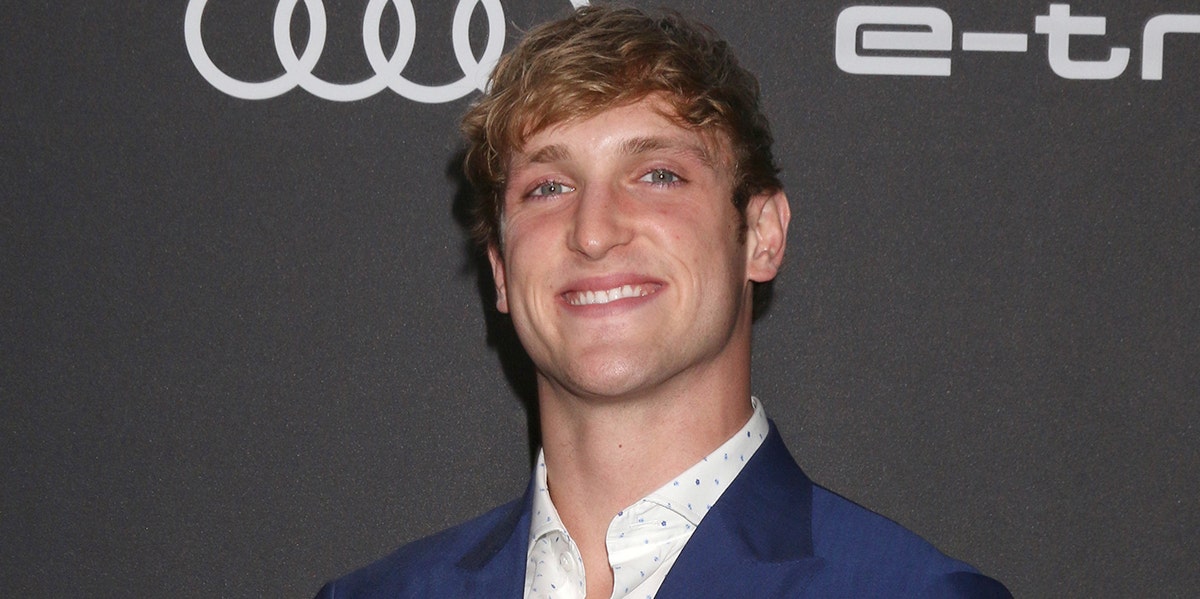Cancel Culture Can Create Positive Change — And Logan Paul Is The Perfect Example
Don't fall for the hype around "cancel culture".
 Kathy Hutchins / Shutterstock
Kathy Hutchins / Shutterstock Cancel culture has become a major phenomenon over the past couple of years.
This phrase often comes up when a person, company or another entity is called out (“canceled”) due to a collective force of various people coming together and pointing out the problems or offenses that person or entity represents.
This doesn't always mean that the called-out person loses their job or the company actually fails. In fact, true cancellation rarely happens.
The cancel culture effect has created a divide with many people. Some see it as an unfortunate mob mentality that can end careers for no reason, while others see it as a good way to call attention to people, practices or views that are harmful.
YouTuber Logan Paul had a brush with cancel culture back in 2017, but he has proven to be the prime example for how cancel culture should be handled for those who make a genuine mistake.
There's a fine line between people who deserve a second chance and those who are canceled for what they've always represented.
Who’s Logan Paul and why was he canceled?
The 26-year-old is an internet personality known for his YouTube videos. He's also an actor, podcaster and boxer. After first growing a following on the discontinued social media platform known as Vine, he transitioned to YouTube and has since gained 22.9 million followers there.
He plunged into extremely hot water back in 2017 when he created one of YouTube’s biggest scandals.
The social media star visited a forest in Japan, near Mount Fuji, known as Aokigahara, claiming to be looking for ghosts. Sadly, the forest is known as a prevalent site for suicides.
While filming in the forest, they stumbled across a corpse hanging from a tree. Paul blurred the man's face but made jokes during the video and posted it to YouTube.
After apologizing both on social media and then in a YouTube video, Paul was seemingly “canceled” by the whole internet. YouTube removed him from their "prefered program" which was a major source of ad revenue for him.
He also lost sponsorships, a potential YouTube show and he garnered hate from all over the planet.
“I’ve made a severe and continuous lapse in my judgment, and I don’t expect to be forgiven,” Paul said in his apology video. “I’m simply here to apologize.”
The “suicide forest video” as it has been referred to, is known as one of tthe biggest influencer scandals in recent years. His reputation, along with that of the video platform, plummeted. Logan himself was headed toward a career-ending path.
How has Paul redeemed himself and changed for the better?
In light of his huge mistake, Paul took a break from social media before posting videos again. He became consistent with the content he put out, which matured deeply, and he stuck with the criticism he faced, taking it head-on.
Over the last four years, he has matured and grown as an adult. The most notable change in his persona came when he issued a statement on Twitter in response to fellow YouTuber David Dobrik being “canceled.”
“Four years later, I’ve come to realize that these blunders, followed by my willingness & enthusiasm to truly change for the better, were the most pivotal moments of my life,” Paul tweeted. “I’m grateful that I had the opportunity to learn, transform, and continue doing what I love.”
Instead of shying away from the scrutiny he faced, he embraced it and did what he could to change. He produced a documentary about what happened in Japan with all of the proceeds going to suicide prevention charities. He even met with people who attempted suicide to educate both himself and others on the topic.
Cancel culture has its divide. On one hand, there are those who have committed horrible acts many times and deserve to be canceled and even brought to justice in some cases. But on the other hand, you have people like Paul who make a lapse in judgment and a small mistake that doesn’t define who they are as a person.
The mob mentality that thirsts for further cancellations doesn’t allow room for a person to grow. It demands perfection of people lest they face the ultimate consequence. Forgiveness and redemption often have no place within its modality.
Why is Logan Paul the best example of the good parts of cancel culture?
Paul is one of the few people who have survived cancel culture and has learned from his mistakes. He is a great example of learning from poor behavior and he's made the choice to actively do better.
Let’s cancel those who deserve it, but those who simply made a mistake should be given the opportunity to redeem themselves and make it right. As Sonya Renee Taylor says in the TEDx video below, accountability is what really matters.
People need to have the opportunity to learn how to change, because that’s where the beauty of being human comes in, when we can evolve and grow into better people.
Paul isn’t a one-in-a-million case, he just had the opportunity to change and grow in front of a huge audience. He went from the most hated individual on the internet to someone who many now respect and admire.
When it's safe and appropriate to do so, I think it's important that we give the same chance to others, so there can be more people who learn and grow from their mistakes, too.
Tomás Diniz Santos is a writer living in Orlando, Florida. He covers news, entertainment, and pop-culture topics.
